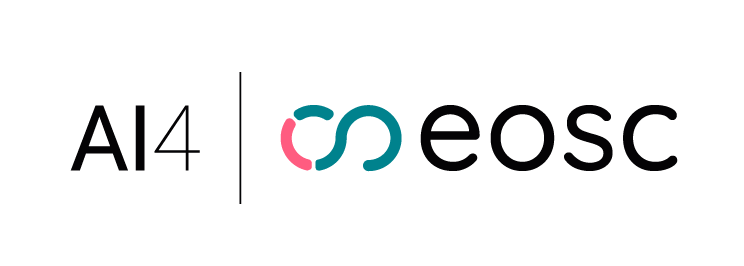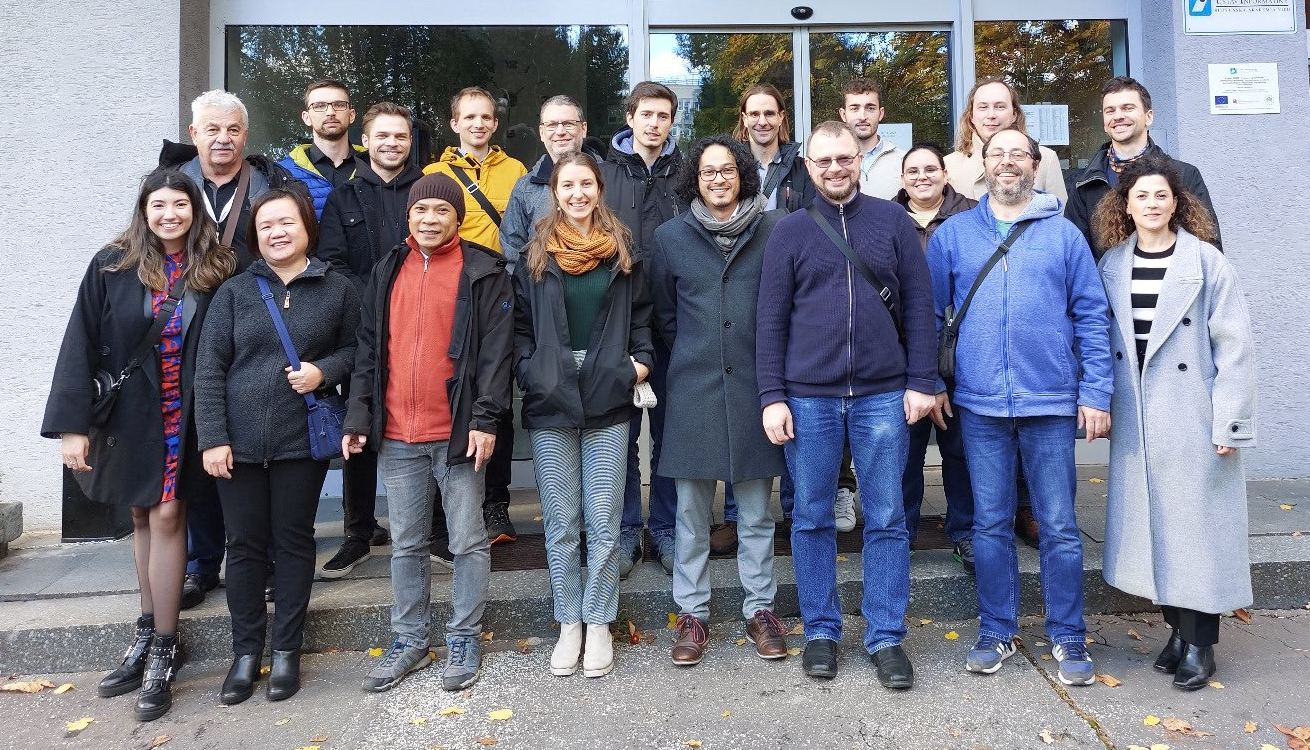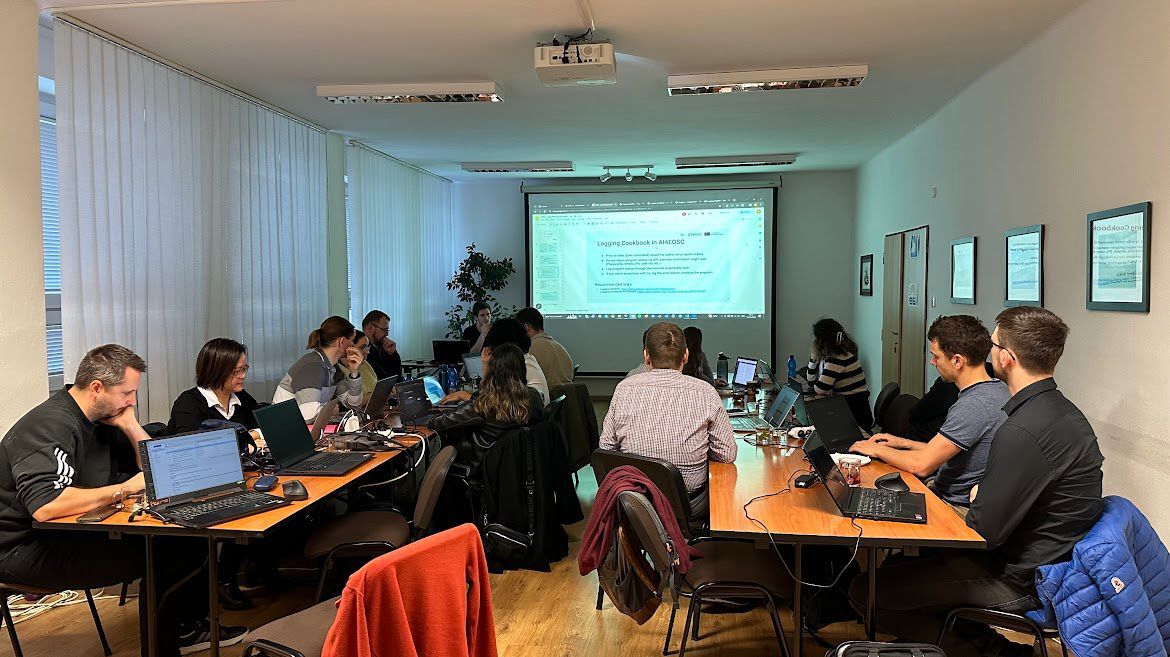More than 50 people attended the first AI4EOSC platform user’s workshop which was held in hybrid format at the Institute of Informatics of the Slovak Academy of Sciences (IISAS) in Bratislava and organised by the IISAS and KIT partners. The aim of the event was to promote collaboration between the different partners involved, as well as the sharing of advances, available resources, how to use them, corresponding demonstrations, and in short, general knowledge exchange between the AI4EOSC platform developers and providers and use cases of the AI4EOSC and iMagine projects.
This two-day event has allowed to bring AI4EOSC platform users, supporters, researchers and developers together to share their experiences and upcoming updates of the platform. People involved in the European project had participated as well as iMagine project partners, an EU-funded project which makes active use of the computing resources deployed with AI4OS, with the mission to deploy, operate, validate, and promote a dedicated iMagine AI framework and platform, connected to European Open Science Cloud (EOSC) and the AI4EU initiative. In particular, the iMagine project focuses on providing researchers with open access to a diverse portfolio of AI-based image analysis services and image repositories, aligning with the broader theme of ‘Healthy oceans, seas, coastal, and inland waters.’
The first day of the workshop focused on giving an overview of the current state of the platform and targeted all participants from both AI4EOSC and iMagine projects. The day started with a talk concerning different state of the art AI methods, followed by a presentation on the present and future roadmap of the dashboard, demonstrations on the use of federated learning within the platform, as well as different frameworks, new templates for modules integration, use of MLFlow, model provenance, OSCAR as a system for inference, AI4Compose and drift detection. The day continued with two hand-on sessions on logging, testing and debugging as well as adding modules to both AI4EOSC and iMagine marketplaces. In closing, a plenary session was conducted on Competence Centers in Europe, as delineated in the Skills4EOSC project.
Day two focused on the three use cases of the AI4ESOC project: agrometeorology, integrated plant protection and automated thermography. The morning started with a session in which every use case presented its status, challenges, future plans and feedback on the current platform and dashboard, followed by an update on the platform technical details. Finally, practical sessions were conducted on the specific challenges of each use case and possible solutions.
This kind of events are relevant in creating links between the AI4EOSC team, sharing experiences, monitoring the feedback, and keeping up to date with the work that each team is doing.




